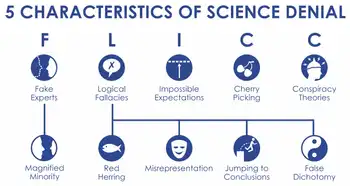Tesla NYC Supercharger Expansion adds rapid EV charging across Manhattan, Brooklyn, and Queens, strengthening infrastructure, easing range anxiety, and advancing New York City sustainability goals with fast chargers at strategic commercial and residential-adjacent locations.
Key Points
Tesla's plan to add rapid EV charging across NYC, boosting access, easing range anxiety, and advancing climate targets.
✅ New Superchargers in Manhattan, Brooklyn, and Queens
✅ Faster charging to cut downtime and range anxiety
✅ Partnerships with businesses to expand public access
In a significant move to enhance the EV charging infrastructure across the city, Tesla has announced plans to expand its network of charging stations throughout New York City. This investment is set to bolster the availability of charging options, making it more convenient for EV owners while encouraging more residents to consider electric vehicles as a viable alternative to traditional gasoline-powered cars.
The Growing Need for Charging Infrastructure
As the demand for electric vehicles continues to rise amid the American EV boom across the country, the need for a robust charging infrastructure has become increasingly critical. With New York City setting ambitious goals to reduce greenhouse gas emissions, the expansion of EVs is seen as a crucial component of its sustainability strategy. Currently, the city aims to have 50% of all vehicles electrified by 2030, a target that necessitates a significant increase in charging stations.
Tesla’s initiative to install more charging points in NYC aligns perfectly with these goals and reflects how charging networks are competing nationwide to expand access, drawing more drivers to consider electric vehicles. By enhancing the charging network, Tesla is not only catering to its existing customers but also appealing to potential EV buyers who may have previously hesitated due to range anxiety or limited charging options.
A Look at the Expansion Plans
The details of Tesla's expansion include adding several new Supercharger stations across key locations in Manhattan, Brooklyn, and Queens, as US automakers move to build 30,000 public chargers nationwide to boost coverage. These stations will be strategically placed to ensure maximum accessibility, especially in densely populated areas where residents may not have easy access to home charging.
Tesla’s Superchargers are known for their rapid charging capabilities, allowing EV drivers to recharge their vehicles in a fraction of the time it would take at a standard charging station. This efficiency will be particularly beneficial in a bustling urban environment like NYC, where convenience and time are of the essence.
Moreover, Tesla is also exploring partnerships with local businesses and property owners to install charging stations at commercial locations. This initiative would not only create more charging opportunities but also encourage businesses to attract EV-driving customers, further promoting electric vehicle adoption.
Impact on EV Adoption in NYC
The expansion of Tesla's charging network is expected to have a positive ripple effect on the adoption of electric vehicles in New York City. With more charging stations available, potential buyers will feel more confident in making the switch to electric. The convenience of accessible charging can significantly reduce range anxiety, a common concern among potential EV buyers.
Additionally, this expansion will likely encourage other automakers to invest in charging infrastructure, as utilities pursue a bullish course on charging to support deployment, leading to a more interconnected network of charging options across the city. As more drivers embrace electric vehicles, the demand for charging will continue to grow, a trend that will test state power grids in the coming years, further solidifying the need for a comprehensive and reliable infrastructure.
Supporting Sustainable Initiatives
Tesla's investment in NYC's charging infrastructure is also part of a broader commitment to sustainability. As cities grapple with the challenges of climate change and air pollution, transitioning to electric vehicles is seen as a vital strategy for reducing emissions. Electric vehicles produce zero tailpipe emissions, which contributes to cleaner air and a healthier urban environment.
Moreover, with the increasing push towards renewable energy sources, the integration of electric vehicles into the city’s transportation system can help reduce reliance on fossil fuels, with energy storage and mobile charging adding flexibility to support the grid. As more charging stations utilize renewable energy, the overall carbon footprint of electric vehicles will continue to decrease, aligning with New York City's climate goals.
Looking Ahead
As Tesla moves forward with its expansion plans in New York City, the implications for both the automotive industry and urban sustainability are profound. By enhancing the charging infrastructure, Tesla is not only facilitating the growth of electric vehicles but also playing a crucial role in the city’s efforts to combat climate change.
Related News












